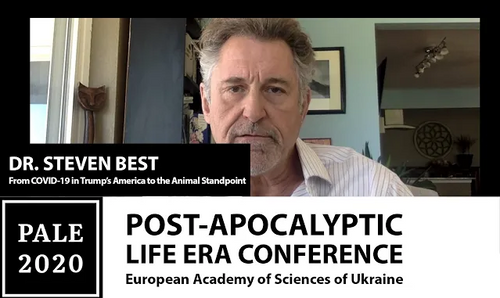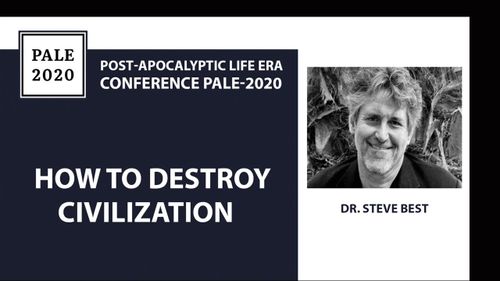
Steven Best
American philosopher, writer, speaker and activist with 30 years work in diverse social movements, such as animal rights, species extinction, human overpopulation, ecological crisis, biotechnology, liberation politics, terrorism, mass media and culture, globalization, and capitalist domination.
Steven Best is Associate Professor of Humanities and Philosophy at the University of Texas, El Paso. Best has published 13 books and over 200 articles and reviews (translated into numerous languages), spoken in nearly two dozen countries, interviewed with media throughout the world, appeared in numerous documentaries, and in 2007 was voted by VegNews as one of the nations “25 Most Fascinating Vegetarians.”
The first significant arc of his intellectual trajectory began with his work on postmodern theory and cultural studies through his writings with renowned Continental Philosophy scholar, Douglas Kellner. These books have been translated into numerous languages, have sold tens of thousands of copies, are standard volumes for graduate courses throughout the world, and have won wide critical acclaim. Indeed, The Postmodern Turn and The Postmodern Adventure both won Social Theory/Philosophy Book of the Year awards. Rounding out this trilogy further, I published my own book, The Politics of Historical Vision: Marx, Foucault, and Habermas (1995). In this work, Steven Best analyzed the political implications of different forms of historiography and he engaged three great theorists in numerous critical dialogues that map out the insights and blindness of classical modern (Marx), reconstructed modern (Habermas), and postmodern (Foucault) positions. The book received high praise from Richard Wolin, Mark Poster, and numerous others.
Best’s most recent work builds on critical trajectories as it seeks to create new bridges between academic and activist communities, and among various activist causes themselves. Specifically, Best has begun to address urgent issues raised by environmentalism and animal rights from the standpoints of critical theory, feminism, cultural studies, postmodern theory, deep ecology, and normative ethics.
He has engaged issues such as the commonalities of oppression involved in racism, sexism, and speciesism, while mounting philosophical arguments in favor of animal rights and a new environmental ethic. In essays such as “The New Abolitionism: Capitalism, Slavery, and Animal Liberation,” Best has demonstrated the strong analogies between 19th century abolitionism in the US and the “new abolitionism” of the 21st century that seeks to emancipate animals from slavery to humans and from the ideology of human supremacy.
Education
Ph.D., University of Texas at Austin, 1993
M.A., University of Chicago, 1987
B.A. (with distinction), University of Illinois, Urbana-Champaign, 1983
A.A., College of DuPage, Illinois, 1979
Book Monographs:
Animal Rights and Moral Progress: The Struggle for Human Evolution (Rowman & Littlefield, 2006).
The Politics of Historical Vision: Marx, Foucault, and Habermas (Guilford Press, 1995).
Contacts:
Email: best[at]utep(dot)edu
Phone: 915-747-5097
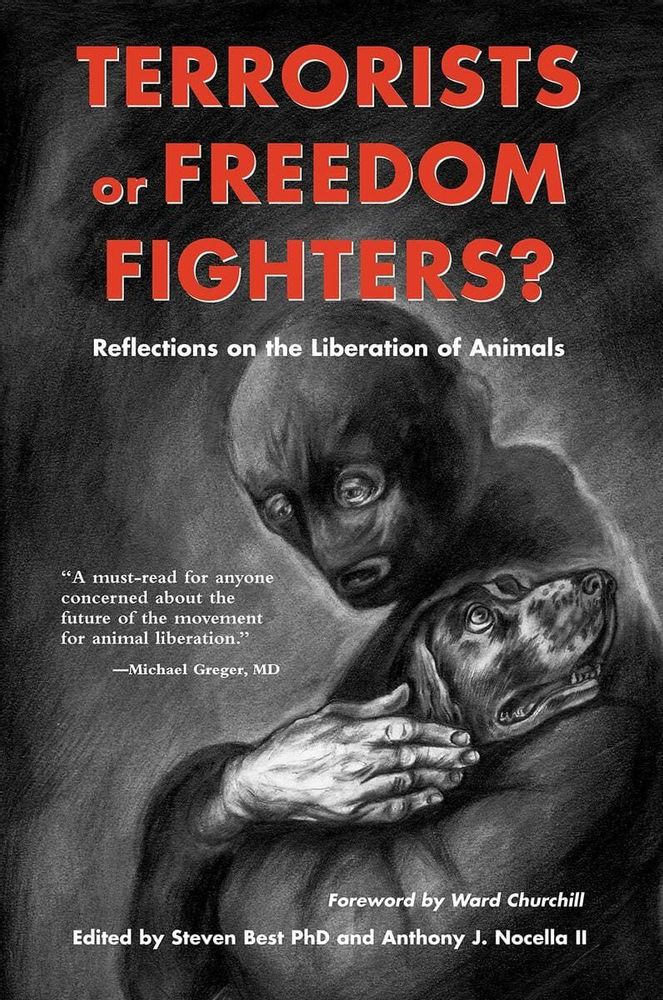 |
Terrorists or Freedom Fighters?: Reflections on the Liberation of Animals The first anthology of writings on the history, ethics, politics and tactics of the Animal Liberation Front, Terrorists or Freedom Fighters? features both academic and activist perspectives and offers powerful insights into this international organization and its position within the animal rights movement. |
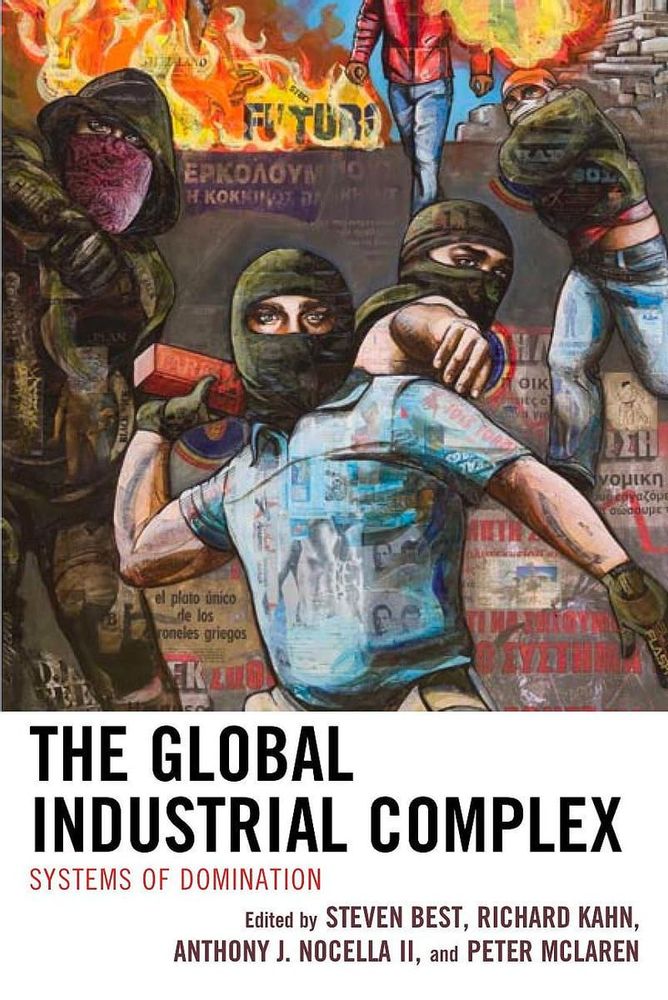 |
The Global Industrial Complex: Systems of Domination The Global Industrial Complex: Systems of Domination is a groundbreaking collection of essays by a diverse set of leading scholars who examine the entangled and evolving global array of corporate-state structures of hegemonic power—what the editors refer to as “the power complex”—that was first analyzed by C. Wright Mills in his 1956 classic work, The Power Elite. In this new volume edited by Steven Best, Richard Kahn, Anthony J. Nocella II, and Peter McLaren, the power complex is conceived as co-constituted, interdependent and imbricated systems of domination. |
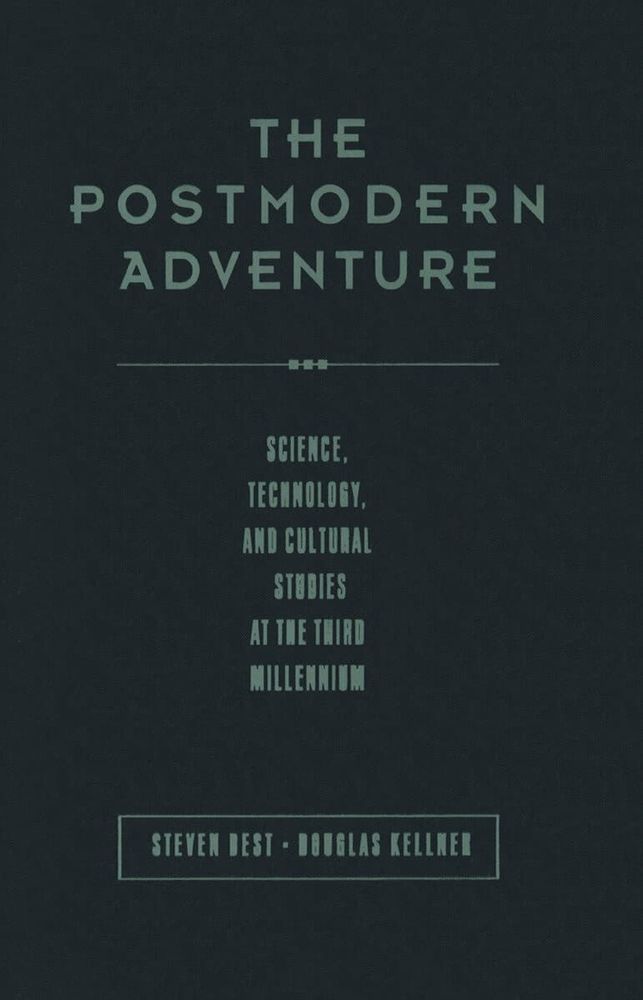 | The Postmodern Adventure: Science Technology and Cultural Studies at the Third Millennium This compelling book explores the challenges to theory, politics, and human identity that we face on the threshold of the third millennium. It follows on the successor of Best and Kellner's two previous books, Postmodern Theory, acclaimed as the best critical introduction to the field - and The Postmodern Turn, which provides a powerful mapping of postmodern developments developments in the arts, politics, science, and theory.
|


